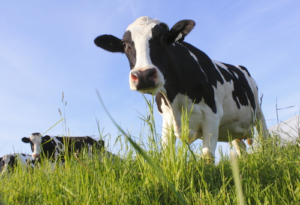Extreme Investor Network: Denmark’s Aggressive Environmental Policies and Their Impact on Agriculture

As global conversations around climate change escalate, Denmark stands out by aggressively pursuing a drastic reduction of greenhouse gas emissions. Committed to fulfilling the ambitious goals set by Agenda 2030 and the Paris Accord, the Danish government has announced a stunning plan aiming to reduce emissions by 70% by 2030 and achieve climate neutrality by 2050. However, what implications do these initiatives hold for Denmark’s vital agricultural sector, particularly its dairy farming?
The Cost of Climate Action: A Taxing Dilemma
A pivotal aspect of Denmark’s strategy involves a hefty tax on cattle farmers: 672 kroner (around $145) per cow. This tax is a part of a broader effort to limit meat production, with plans for annual increases, potentially reaching 1,680 kroner by 2035. As a result, the number of dairy cows in Denmark has already plummeted, with a decrease of approximately 546,800 cows from 2022 to 2023. With Denmark representing only 2.5% of the European Union’s dairy cows but contributing roughly 3.6% of the milk consumed within the EU, these changes present significant challenges.
The tax is not merely an economic issue; it’s a social one, fueled by government-funded studies that claim backyard farming and livestock ownership are serious environmental threats. Much like the public’s blind trust during the COVID pandemic, there’s a growing concern that residents are being forced to accept “the science” that underpins these policies without transparency or debate.
Agriculture’s Crucial Role in Denmark’s Economy
Agriculture is not merely a quaint tradition in Denmark; it constitutes 22% of the nation’s total exports, producing sufficient food to sustain 15 million people annually. The dairy and cattle sectors are largely supported by farmer-owned cooperatives, which represent a robust 90% of production. However, the government’s plans to revert 10% to 15% of farmland back to nature may endanger these established cooperative systems.
If you’ve ever wondered how changing land regulations can silently alter the landscape of a nation, Denmark serves as a pertinent case study. Despite agriculture’s importance, the government has hinted at loosening land regulations to expedite the implementation of these radical environmental policies.
An Authoritarian Turn? The Future of Danish Farmland
One alarming potential outcome of these initiatives is the government’s strategy to eventually coerce farmers off their land. Initial suggestions hint at financial incentives, but the specter of more authoritarian measures looms. Under Section 73 of the Danish Constitution and the Danish Expropriation Act, land can be expropriated for various reasons, including those aligned with conservation efforts. This provides a legal loophole that could permit the government to seize farmland in pursuit of its climate agenda.
Conclusion: The Repercussions on the Global Stage
The situation in Denmark serves as an urgent reminder of the complexities involved in climate policies, especially when they collide with foundational sectors like agriculture. The future of Danish farming holds crucial lessons for other nations grappling with similar dilemmas. As an investor, being informed about these developments is vital—not just as a matter of economic interest, but as a reflection of broader trends in environmental regulation that could traverse borders.
At Extreme Investor Network, we believe that understanding these dynamics is essential for making informed decisions in an interconnected global economy. Whether you’re an investor, an agricultural stakeholder, or simply a concerned citizen, we encourage you to engage critically with these issues. Join us as we delve deeper into the intersection of climate policy, agriculture, and investment opportunities, and let’s navigate this changing landscape together!

